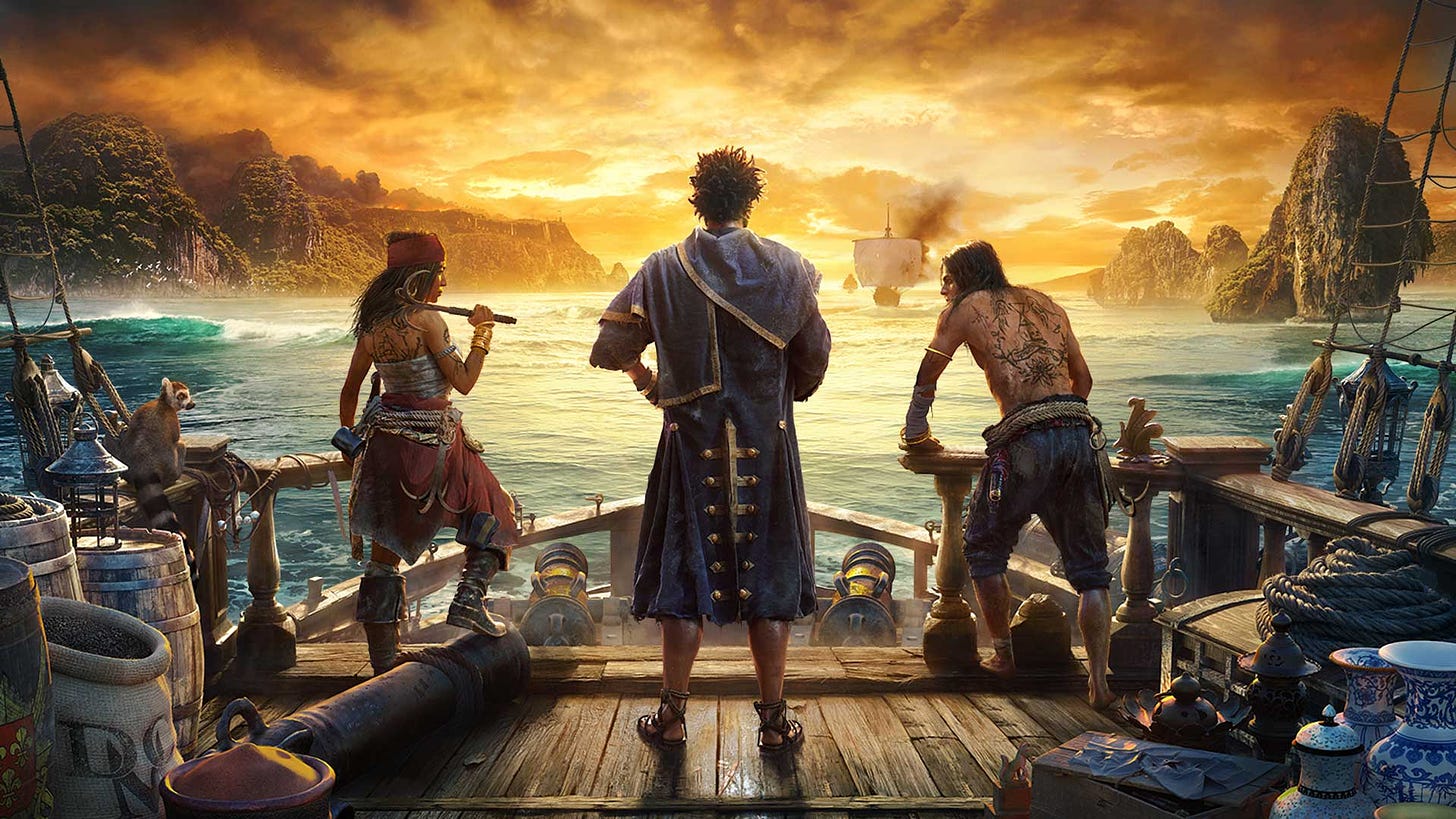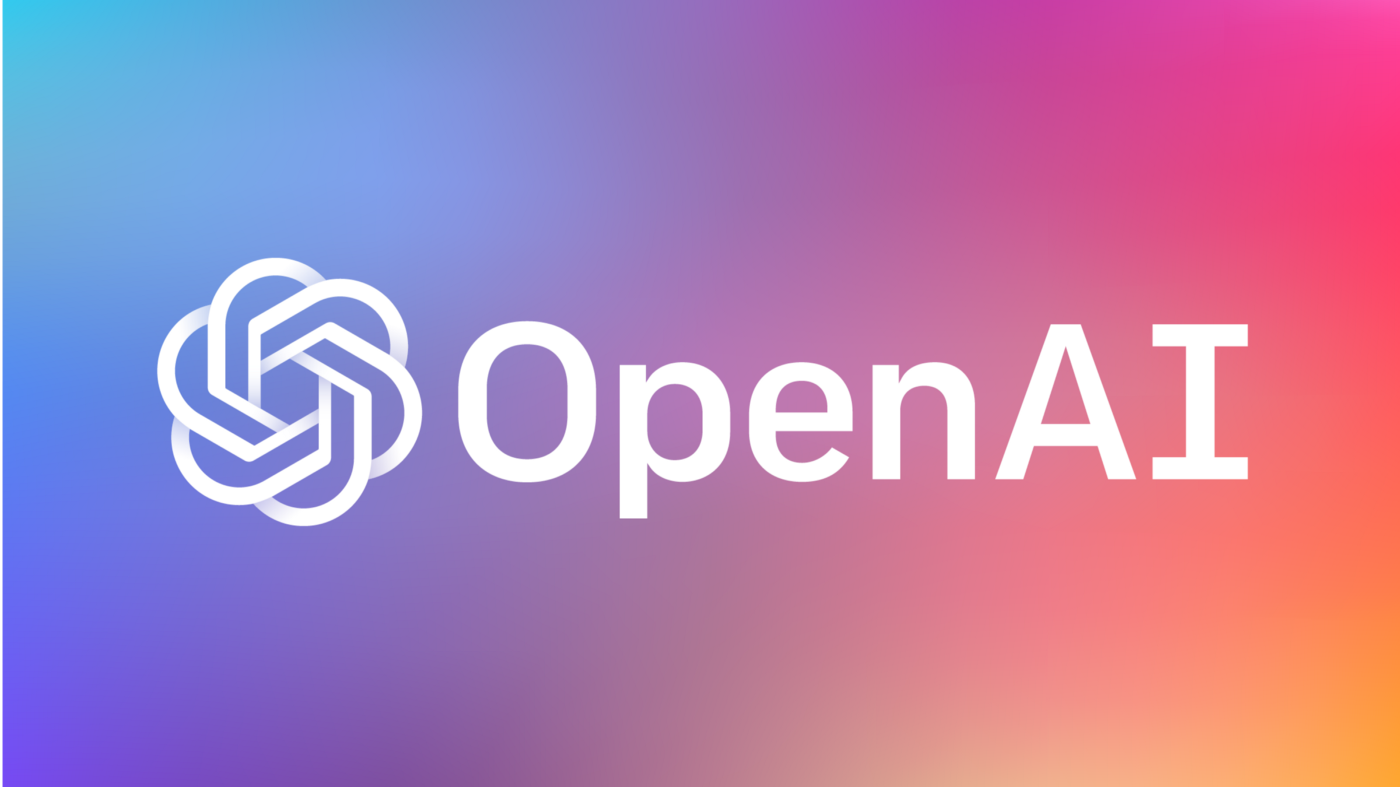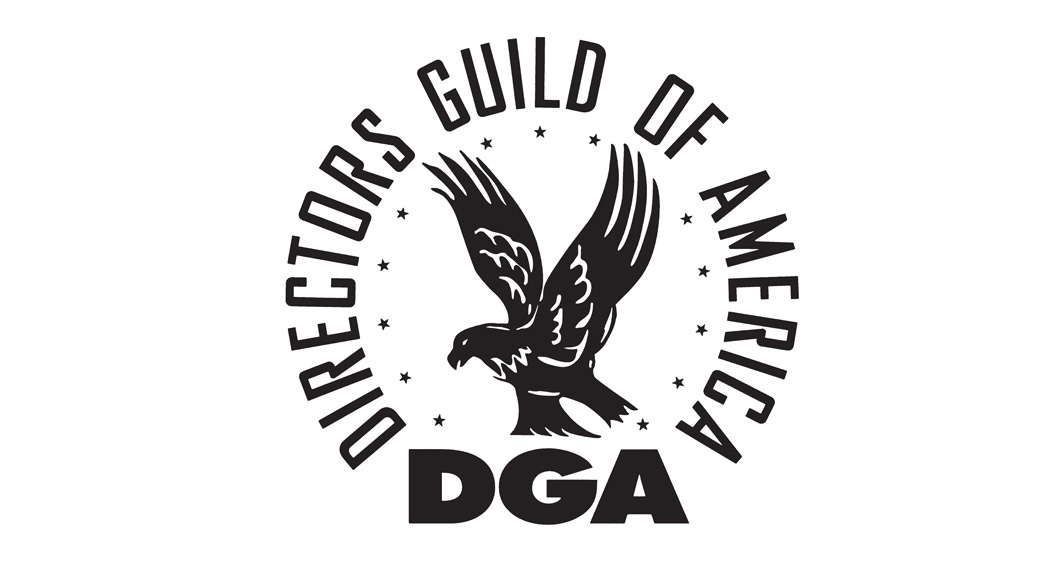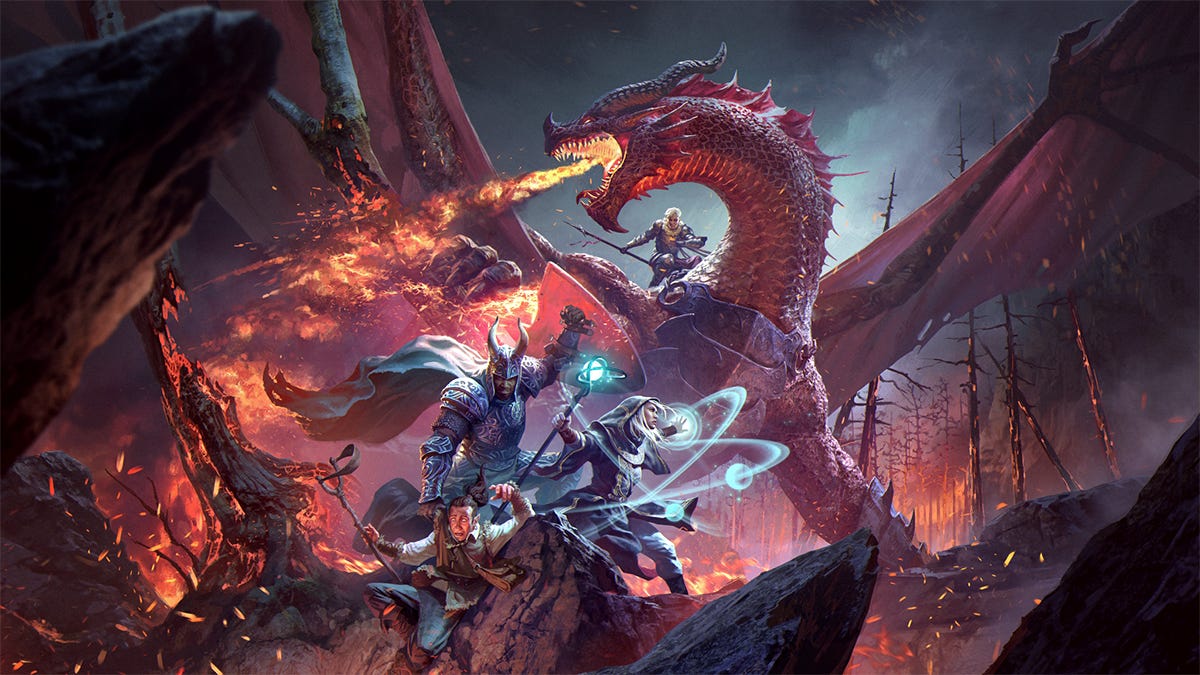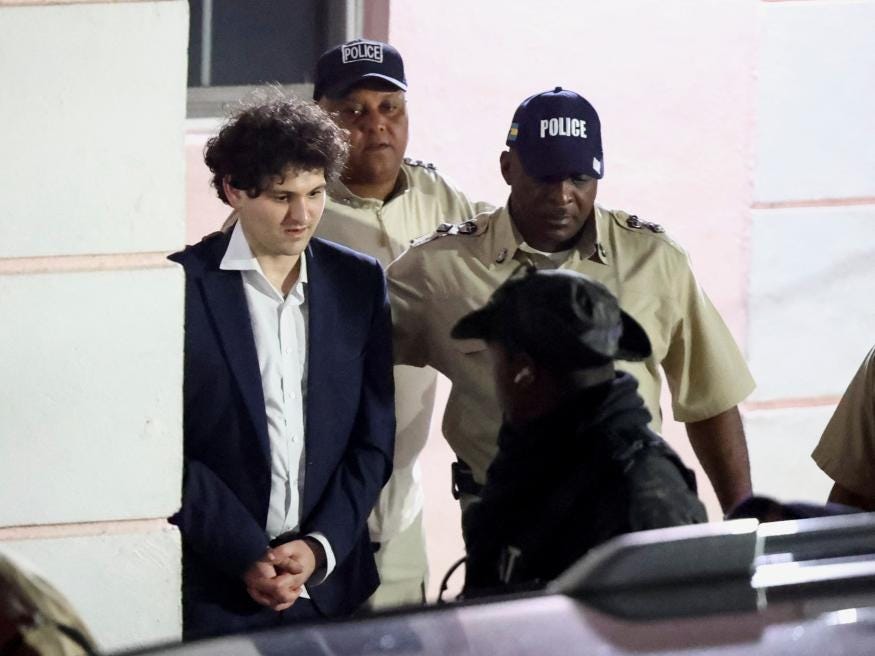Stuff Worth Knowing for the Week of January 9, 2023
Ubisoft is lost at sea, Microsoft might invest in OpenAI, and Wizards of the Coast almost dies in a dungeon.
Welcome back to Stuff Worth Knowing! Each week, I'll round up news related to tech, video games, film, television, anime, and more. At the end of each newsletter, there will be a section called On The Calendar, which will include some of those notable dates that are near-term. Oh, and I also launched my Patreon, SavePhile, where my more thoughtful musings on any topic will go.
We're two weeks into 2023 and it seems like the world is getting back into the swing of things. After a lighter week last week, I have a lot of news for you!
Video Games 🎮
Ubisoft Cancels A Number of Projects, Delays Skull and Bones Once Again
Ubisoft has fallen on hard times recently. Assassin's Creed Valhalla was the last release in the publisher's best-selling franchise and that came out in 2020. Recent titles like Far Cry 6 and Riders Republic have performed fine, but Ubisoft has had to resort to "playtime per player" metrics rather than outright sales to look good. Finally, potential projects like Tom Clancy's Ghost Recon Frontline have been canceled outright, while others like Prince of Persia Remake have run into development issues.
In a press release this week, Ubisoft revealed that it has canceled further planned titles, instead pivoting back toward its biggest brands. "We have decided to cancel three unannounced projects, on top of the four already announced in July 2022," said the company in the press release. Ubisoft CEO Yves Guillemot noted that the recently-released Mario + Rabbids: Sparks of Hope and Just Dance 2023 both underperformed upon release.
What does the company consider its main franchises? According to the release, the full list includes Assassin’s Creed, Far Cry, Tom Clancy’s Ghost Recon, Tom Clancy’s Rainbow Six, and Tom Clancy’s The Division. Guillemot said that Ubisoft will continue to work on creating more live service games within those franchises.
"We expect our strategy to build long-lasting live games and transform our biggest brands into truly global phenomena with multiple offerings across platforms and business models, to ultimately generate significant value creation, with strong topline and operating income growth over the coming years," the CEO added.
Why It's Worth Knowing: Ubisoft used to be one of the biggest game publishers globally, but its prospects have fallen in recent years, even as companies like Tencent and NetEase have grown in size and scope. The publisher has been beset by multiple claims of harassment and a toxic work environment, stumbles in the shift to development at home during the pandemic, and a general dissatisfaction with its releases. The press release is obviously a signal to shareholders that Ubisoft management realizes there's a problem, but the issue with game development is any fixes won't show results for years down the line.
In the meantime, some employees Ubisoft has parted ways with are landing at those other growing publishers. Assassin’s Creed: Valhalla creative director Ashraf Ismail ended up at Tencent as a consulting creative director after his firing from Ubisoft for allegations of abuse of power. Combine that with the general loss of morale at the studio and Ubisoft is losing talent to other studios in cities like Montreal and Toronto. This will make it harder for the publisher to crawl out of the hole it has made for itself.
Amazon Games Studio Head Steps Down
As I noted in a previous Stuff Worth Knowing, Amazon Games has figured out that it doesn't need to develop games in-house. It's better to use those considerable Amazon resources to fund games from proven teams or localize existing games from other markets. Someone has to take the fall for going with expensive in-house development though. And it seems that someone is Amazon Game Studio boss John Smedley.
Bloomberg reports that Smedley is stepping down from his position. In his place, Amazon Games Principal Publishing Producer Andy Sites will be taking over.
I'm not surprised, as Smedley's tenure as boss of Sony Online Entertainment in that company's latter days was less than successful. Likewise, Amazon's games efforts have been largely a failure. Breakaway and Crucible were both canceled before they could get full launches, New World has struggled since launch, and the planned Lord of the Rings MMO fell apart. The only real success has been Lost Ark, which is just a localization of an MMORPG by Korean developers Smilegate and Tripod Studios. That title has been the signpost for the future of Amazon Games, it seems.
Playground Games Veterans Leave To Form Maverick Games
Many lead developers at Microsoft's Playground Games have left the studio to form a brand-new venture called Maverick Games. The new team is led by Mike Brown, the former creative director on the Forza Horizon franchise. Following him out the door are chief technology officer Matt Craven, executive producer Tom Butcher, content director Gareth Harwood, and audio director Fraser Strachan. Harinder Sangha, formerly of Sumo Leamington, has signed up as chief operating officer.
Maverick Games is located in Leamington Spa, the same city as Playground itself. The team's first game is likely a ways away, but Brown hinted that it'll be an open-world title.
"I'd definitely describe myself as an open world guy first, rather than a driving guy," Brown told Gamesindustry. "The game will be open world, it will be AAA, it will be premium, it will have the ambition to go on and win all the awards."
Why It's Worth Knowing: This one is more inference than anything else. Microsoft has picked up a number of studios over the past few years, but the return on investment hasn't been great yet. 343 Industries lacks a vision for Halo Infinite, The Coalition's last game was Gears 5, Undead Labs' State of Decay 3 has seen heavy delays, and The Initiative studio founded in 2018 has gone nowhere fast.
That's not to say Microsoft has no wins on the horizon, but most of the upcoming ones are from the ZeniMax studios, not any that have been under Xbox Game Studios' direct purview. Xbox needs more wins from the studios acquired in 2018, like Compulsion Games and inXile Entertainment.
To bring it back around, one of the more successful franchises in Microsoft's stable, Forza Horizon, is losing key creative team members. Microsoft can't really afford to let talent slip away. Especially when it feels like Sony is releasing bangers and Microsoft is getting banged up. (Except Pentiment. Play Pentiment.) Xbox does have a Developer_Direct event coming on January 25, so maybe that'll help matters.
Tech ⌨️
Microsoft In Talks To Invest $10 Billion Into OpenAI
If the crypto boom and bust are behind us, it looks like investors and major companies are looking at the next big thing. AI generated content is all the rage now, from the image generation capabilities of DALL-E, Midjourney, and Stable Diffusion; to the text generation of ChatGPT, and the code creation of Codex. It seems one company is stepping forward to invest heavily in this new technology.
Semafor reports that Microsoft is in talks to invest $10 billion into OpenAI. The software giant is part of a round of funding including other venture firms that would value OpenAI at $29 billion. Apparently, Microsoft's part of the deal would see it taking 75% of OpenAI's profits until it recoups its investment. Once that period finishes, Microsoft would have a 49% stake in the company.
Why It's Worth Knowing: Right now, OpenAI isn't making a ton of money. Every time someone uses its services, there's a set cost in computing power. OpenAI does charge DALL-E users per generation, but it's unclear how much money that's making the company. ChatGPT is still free as it's in the research phase.
But CNET started running service articles written by AI earlier this week, as noticed by Futurism.com. There are many, many companies who would love to farm copywriting out to a machine rather than paying a person. And that's where the business proposition is; not general users, but companies who have money to spend.
We're still puzzling out the human cost of all of this. According to Big Technology writer Alex Kantrowitz, a person using AI plagiarized his work from an article published only days prior. And the AI art debate has gotten heated on places like DeviantArt and ArtStation. At the end of the day, the issue is likely that OpenAI is going to make the money off all of this by putting many others out of work. Microsoft standing behind the company in a big way is an early harbinger.
Shout Out: A Medium blog post talking about OpenAI deciding to be less “open” and not release the GPT-3 code.
Apple's Mixed Reality Headset Leads a "Muted" 2023
According to Bloomberg's Mark Gurman, Apple is finally ready to launch its planned mixed-reality headset. The company is looking to reveal the device in Spring. Apple has apparently shared the device with some high-profile software developers to give them a chance to make software prior to a launch in Fall 2023.
The headset will launch this year, but it's apparently leading a weaker slate of Apple products in 2023. The other devices coming this year will be new MacBook Pros with M2 Pro and M2 Max chips, a high-end Mac Pro, a updated 15-inch MacBook Air, and potentially a larger iMac Pro. None of the iPads are set for a refresh or new design, and the Apple Watch and AirPods will likely not get much more than a spec bump. Gurman also said that the focus on the xrOS operating system for the headset has meant that some features from iOS 17, iPadOS 17, and macOS 14 have been pared back.
That doesn't mean Apple isn't working on anything on the hardware side. Gurman dropped a second report stating that the company will likely use its own design for Wi-Fi and Bluetooth chips in future products. Just Apple bringing another part of its devices in-house.
Why It's Worth Knowing: Meta is losing a ton of money chasing the metaverse and mixed reality, but Apple is likely going to make a splash. Its planned headset will apparently be in the range of $2,000-3,000, far above the competition, but at the end of the day, the Apple cachet may win out. People don't trust Meta and they don't know HTC, but a lot of people love and trust Apple.
China Makes Moves In Big Tech
There were a pair of stories focused on the Chinese government trying to gain a stronger hand on its tech sector this week. The first story involved the Ant Group, the owner of mobile payment platform AliPay, which is tied to sister company Alibaba. Ant Group founder and billionaire Jack Ma is relinquishing control of the company, according to The New York Times. Chinese officials have apparently had the company and Ma in their sights for some time now, following comments he made about banking regulators in 2019. Ma will remain one of 10 major shareholders in the company.
The second story involves Alibaba and growing gaming publisher Tencent. (Full disclosure: My day job is at Fanbyte, which is owned by Tencent.) The Chinese government has picked up special management shares — also known as "golden shares" — in both companies, allowing the state to exert influence over them. After holding back its Big Tech sector, it looks like China is ready to let them roam free again, but with some caveats.
The big problem ahead of many of these companies is that other governments might look at these companies with enhanced scrutiny. TikTok owner ByteDance is in a similar situation regarding government stakes, and that's already caused folks in the U.S. government to look into the company's handling of user data. (And the company obtaining the data of several U.S. journalists.) We'll see if these golden shares prevent Tencent from expanding further in North America.
Tesla Lowers Prices As It Plans To Expand
Tesla's stock price has stopped tumbling for now, but the company is still feeling the heat. In response, Tesla lowered the prices of many of its cars globally. Reuters reported that prices dipped as high as 20% in some regions. The company still seems overvalued compared to its actual sales, but the price cuts could help stem the bleeding.
While things are looking bad, Tesla still has an eye toward the future. According to documents filed by Tesla with the Texas Department of Licensing and Registration, the company will invest around $717 million to add 1.4 million square feet to its Austin factory. The construction of the additional space should begin later this month and be completed by February 2024.
This Week In Twitter: The Timeline Gets Remix As Elon Deals With Legal Matters
This week ended with Twitter overhauling its app to provide an experience more akin to newer social media services like TikTok. On iOS and the web client, users will see new "For You" and "Following" tabs, replacing the old Star icon. The "For You" tab will be the curated algorithmic recommendations from Twitter, while "Following" is simply all the tweets from users you follow in chronological order. The new layout will be coming to Android eventually.
The New York Times published a report on Wednesday highlighting how desperate Twitter is for revenue. Apparently the company has discussed selling usernames. This dovetails with previous tweets from Musk back in December, stating that Twitter would start deleting inactive accounts to free up names. The hope is that certain usernames could go for higher prices, similar to web domain names.
On the side of Twitter's struggles and shifts, Musk is also dealing with legal issues related to Tesla. There's an upcoming shareholder class action lawsuit that claims Musk manipulated Tesla's stock via a tweet made in 2018. The Tesla CEO and Twitter owner is looking for a more favorable trial location and wants to move the trial from Northern California to Western Texas, citing "local negativity" toward him. Update: Bloomberg reports that a federal judge denied this request.
Film, Television, and Streaming 🎞️
DGA Warns That Upcoming Contract Negotiations Could Be "Extremely Challenging"
If you don't keep track of Hollywood machinations, you might not know that the Directors Guild of America (DGA), Writers Guild of America (WGA) and Screen Actors Guild-American Federation of Television and Radio Artists (SAG-AFTRA) are all entering contract negotiations with the Alliance of Motion Picture & Television Producers this year. The current WGA contract expires on May 1, while the DGA and SAG-AFTRA contracts expire on June 30.
Of these groups, there's rumblings that there will be a writers strike, as the WGA wants several changes to its contract in the streaming era. Likewise, DGA leadership warned that its union could also play ball with the studios this year.
"This year promises to be an extremely challenging negotiating environment – one of the most difficult and complex we have faced in many years – with studios continuing to consolidate and become increasingly vertically integrated, and with extraordinary economic headwinds facing our industry and our nation. In this environment, your strength and support will be more important than ever," DGA negotiations chair Jon Avnet and national executive director Russell Hollander said in a message to their members obtained by The Hollywood Reporter.
Like the WGA and SAG-AFTRA, it's likely that streaming practices and wages will be front-of-mind for the DGA. They said as much in a statement released back in November last year. Still, it's hard to tell if the threat of a strike will come from directors.
Why It's Worth Knowing: Strikes are important for proving these unions have leverage in negotiations. In this case, strikes also mean potential changes in your entertainment. The 2007 Writers Guild of America strike lasted 14 weeks, but it derailed a large chunk of planned scripted programming for the 2008 season. Reality television, which didn't require writers, got a boost, while networks felt the struggle as ad sales declined due to a lack of new shows.
The landscape is different now with streaming, but the effects of a strike from any of the major guilds will still be felt. We should all want the unions to get what they want when they reach the negotiation table, because that's great for workers and happy, safe workers produce better shows and films.
NBC Universal, Warner Bros Discovery, Paramount Team Up For Alternate To Nielsen
According to Deadline, NBCUniversal, Fox, Warner Bros. Discovery, Paramount, and TelevisaUnivision are partnering with the Video Advertising Bureau and upstart advertising company OpenAP to develop an alternative to the viewership measurements from Nielsen Holdings. The companies are forming a new Joint Industry Committee (JIC), which will handle the cross-platform service. The plan is to have the service operational by Broadcast Year 2024.
"The sustainability of the premium video advertising model depends on an ecosystem for measurement that is transparent, independent, inclusive, and accurately reflects the way all people consume premium video content today – across multiple screens, connections, and devices," said Jeff Shell, CEO of NBCUniversal; Bob Bakish, CEO of Paramount; Wade Davis, CEO of TelevisaUnivision; and David Zaslav, President and CEO, Warner Bros. Discovery in a joint statement.
Why It's Worth Knowing: For years, Nielsen has been measuring viewers for TV and other markets. The Nielsen numbers are one of the most prominent ways to measure the viewership, and thus the success, of most television shows. Especially since TV lacks easily viewable and public measurements like box office for film.
The problem for major distributors is that Nielsen numbers have been potentially less accurate when it comes to streaming services. (Also, it's harder to spin numbers if you don't control them.) This joint venture is a good start to building something that might truly compete with Nielsen in a way services like Samba and Parrot Analytics can't match.
Books 📚
Wizards of the Coast Tries (And Fails?) To Change Dungeons & Dragons' OGL
If you haven't noticed the growth in creator content centered around Dungeons & Dragons, then I'd say you live in a dungeon. Take Critical Role, a video role-playing experience involving famous voice actors and their friends that boasts 1.87 million subscribers on YouTube, which is only the tip of its multimedia empire. Shows like Critical Role are an entire cottage industry at this point.
Part of the reason that industry can even exist is Dungeons & Dragons' Open Gaming License. The license created a system for other content and other tabletop games to exist on top of without worrying about falling afoul of Wizards of the Coast legally. It also had an added benefit to Wizards: pulling more people back toward D&D.
"The idea is to release a D20 System reference document under the Open Gaming License; essentially exposing the standard D&D mechanics, classes, races, spells, and monsters to the Open Gaming community. Anyone could use that material to develop a product using that information essentially without restrictions, including the lack of a royalty or a fee paid to Wizards of the Coast," said former Wizards of the Coast vice president Ryan Dancey at the time of the OGL's creation.
The issues arose when Wizards stated it was planning to update the OGL in early 2023. Gizmodo posted a leaked version of the new license last week, noting that the new language would give Wizards further control over products created using the OGL. As stated in the document, Wizards believed that the "OGL wasn’t intended to fund major competitors." The document also included a royalty structure for creators making over a certain amount in revenue.
The community — which has grown considerably thanks to the cottage industry mentioned above — was livid about the potential change. Rival company Paizo, made up of former Dungeons & Dragons employees, announced its own Open RPG Creative License (ORC). The company is the developer of the Pathfinder and Starfinder, both of which were originally based on the OGL.
In response to the fiery backlash, Wizards of the Coast backed down on some of its changes. In a statement, the company said it merely wanted to prevent D&D from being used for hateful and discriminatory products and Web3 projects. Despite that, Wizards is rethinking the language in the new version of the license, removing things like the royalty scheme.
"Thank you for caring enough to let us know what works and what doesn’t, what you need and what scares you. Without knowing that, we can’t do our part to make the new OGL match our principles. Finally, we’d appreciate the chance to make this right. We love D&D’s devoted players and the creators who take them on so many incredible adventures. We won’t let you down," said the company in its statement.
Creators are still being cautious, of course, as the new OGL has yet to be released.
On My Mind 🧠
Sam Bankman-Fried Starts a Substack: If I were under legal threat for fraud, I would simply not tweet. FTX founder Sam Bankman-Fried went in the opposite direction and started his own Substack this week. The first post is all about explaining his side of the story. Seems like a bad idea.
“I didn’t steal funds, and I certainly didn’t stash billions away. Nearly all of my assets were and still are utilizable to backstop FTX customers. I have, for instance, offered to contribute nearly all of my personal shares in Robinhood to customers–or 100%, if the Chapter 11 team would honor my D&O legal expense indemnification.”
YouTubers Are Losing Money To YouTube's New Profanity Policies (Polygon): It seems YouTube has changed policies once again, and this time it's causing a lot of videos from certain creators to be demonetized. And these creators are pissed.
“It’s immensely frustrating, and it incentivizes me to continue to plan for a future where YouTube is no longer part of my life. When sudden policy changes can significantly affect your livelihood at the drop of a hat, you realize just how unsustainable this career is in the long run,” [SungWon "ProZD" Cho] told Polygon over email.



